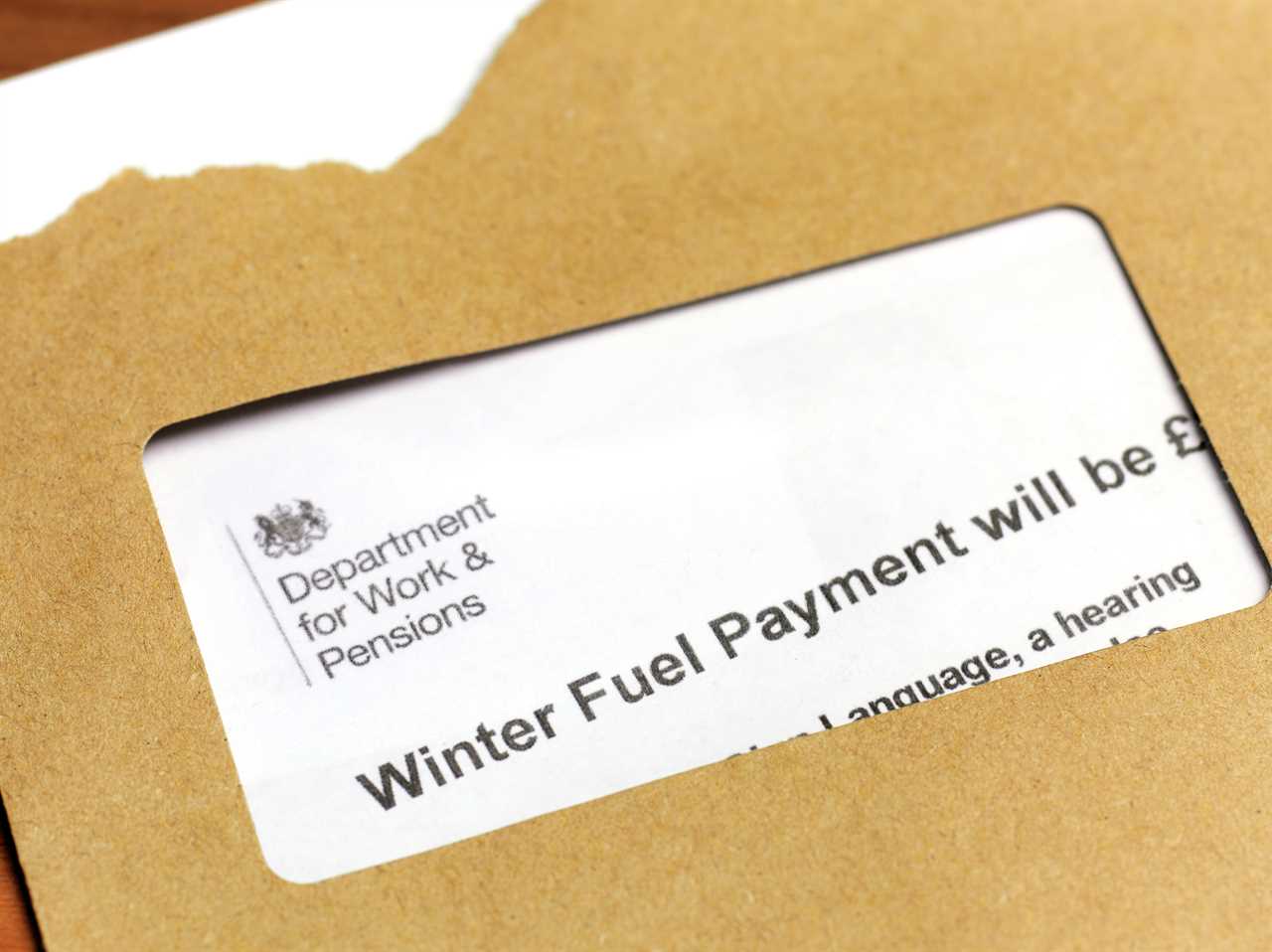
Deadline Looms for Eligible Households
Thousands of UK households have just hours left to apply for the £300 winter fuel payment. The government has issued a stern warning to those who might miss the cut-off, emphasizing that eligible individuals could miss out on vital financial support if they delay their applications.
Eligibility Criteria Explained
To qualify for the winter fuel payment, certain conditions must be met. Applicants born before 23 September 1958 and those receiving the UK State Pension are automatically eligible. Additionally, individuals must maintain a genuine and sufficient connection to the UK, which includes having lived or worked in the country or having family ties here. For those who have relocated abroad, eligibility hinges on moving to an approved country before 31 December 2020 and being covered by the Withdrawal Agreement.
Special Provisions for Brits Living Overseas
British or Irish nationals residing in Ireland have slightly different criteria. They do not need to have relocated by the end of 2020 but must still satisfy all other eligibility requirements. Those abroad can apply for the payment by phone or mail until 31 March. To qualify, they must receive a qualifying means-tested benefit from their current country of residence that aligns with UK benefits such as Pension Credit or Universal Credit.
Application Process Made Simple
Households can apply for the winter fuel payment by completing the necessary claim form and sending it to the Winter Fuel Payment Centre via post. It’s crucial to ensure all details are accurately filled out to avoid delays in processing. Once approved, recipients will receive a letter outlining the payment amount and the bank account that will receive the funds.

Understanding Your Payment
This year’s winter fuel payment offers up to £200 for eligible households, with an increased amount of £300 for those with someone aged over 80. Last year, payments ranged between £300 and £600, inclusive of a "Pensioner Cost of Living Payment." Despite the lower maximum this year, eligible households will still receive substantial financial support to help manage winter energy costs.
Energy Bills May Ease This Summer
In a welcome development, energy bills are forecasted to decrease by £137 annually this summer, following a significant rise in recent days. Cornwall Insight predicts that the average yearly cost for gas and electricity will drop to £1,732 by July, marking a 7% decline from April’s price cap. This is the first reduction in over nine months, offering some relief to households grappling with soaring energy expenses.
Looking Ahead: What to Expect
Experts at Cornwall Insight caution that while the current forecast is positive, energy prices remain volatile. Bills are expected to rise again in October before potentially decreasing in early 2026. Factors such as geopolitical tensions and market fluctuations continue to influence the energy sector, making future predictions uncertain.
Staying Informed and Prepared
With the next price cap announcement from Ofgem scheduled for May, it’s essential for households on standard variable tariffs in England, Wales, and Scotland to stay updated. The upcoming changes will impact around 26 million households, underscoring the importance of understanding eligibility and applying for available support promptly.
Managing Rising Costs
Despite the anticipated increase in energy bills by £111 annually from April 1, average costs remain significantly lower than during the peak of the energy crisis sparked by Russia’s invasion of Ukraine in February 2022. The conflict had previously driven up wholesale energy prices, but recent trends suggest a stabilization that may help mitigate further financial strain on consumers.
Your Next Steps
Residents eligible for the winter fuel payment should act quickly to complete their applications before the deadline. Staying informed about energy price trends and upcoming regulatory changes will also help households navigate the evolving financial landscape effectively.
Frequently Asked Questions
How can I start saving for retirement?
To start saving for retirement, begin by establishing clear retirement goals and determining how much you need to save. Contribute to employer-sponsored retirement plans, such as a 401(k), and consider opening an Individual Retirement Account (IRA). Regular contributions and taking advantage of compounding interest can significantly boost your retirement savings over time.
How does inflation affect the value of money?
Inflation refers to the general rise in prices over time, which erodes the purchasing power of money. As inflation increases, each unit of currency buys fewer goods and services, meaning that the value of money decreases in terms of what it can purchase.
What are the risks associated with investing in the stock market?
Investing in the stock market involves several risks, including market volatility, economic downturns, and company-specific factors that can lead to losses. Investors may also face liquidity risk, where they cannot sell an investment quickly without incurring a loss. Diversification and thorough research can help mitigate these risks.
How can I budget my money effectively?
To budget effectively, start by tracking your income and expenses to understand your spending habits. Set realistic financial goals, categorize your expenses, and allocate funds accordingly. Regularly review and adjust your budget to ensure it reflects your current financial situation and objectives.
What is a budget deficit?
A budget deficit occurs when a government's expenditures exceed its revenues over a specific period, usually a fiscal year. This can lead to increased borrowing and national debt if not addressed through spending cuts or revenue increases.
What is the role of central banks in the economy?
Central banks manage a nation's currency, money supply, and interest rates. They implement monetary policy to control inflation, stabilize the currency, and foster economic growth. They also serve as lenders of last resort to the banking system during financial crises.
What is the difference between saving and investing?
Saving typically involves setting aside money in a secure account for short-term needs or emergencies, while investing involves using money to purchase assets like stocks or real estate with the expectation of generating a return over the long term. Investing carries higher risks but offers the potential for greater rewards.
Statistics
- According to the World Bank, around 1.7 billion adults worldwide remain unbanked, lacking access to basic financial services.
- As of 2021, the average American household had approximately $8,400 in credit card debt, according to Experian.
- According to a Gallup poll, 56% of Americans report that their financial situation is better than it was a year ago.
- According to the Federal Reserve, approximately 39% of Americans do not have enough savings to cover a $400 emergency expense.
- The average cost of raising a child in the U.S. is estimated to be around $233,610, according to the U.S. Department of Agriculture.
- In 2020, the average retirement savings for Americans aged 60 to 69 was approximately $195,000, according to Fidelity.
- A study by the National Endowment for Financial Education found that 60% of Americans do not have a budget.
- According to a survey by the Financial Industry Regulatory Authority (FINRA), about 66% of Americans could not correctly answer four basic financial literacy questions.
External Links
How To
How To Choose the Right Insurance Policies
Choosing the right insurance policies is crucial for protecting your assets and financial well-being. Start by assessing your needs based on your lifestyle, dependents, and financial situation. Research various types of insurance, such as health, auto, home, and life insurance, to understand the coverage options available. Compare quotes from multiple insurance providers to ensure you are getting the best rates and coverage. Read reviews and seek recommendations to gauge the reliability of the insurance companies. Finally, regularly review your policies to ensure they evolve with your life changes, adjusting coverage as needed for optimal protection.
Did you miss our previous article...
https://hellofaread.com/money/nationwide-services-plunge-into-blackout-customers-struggle-to-access-accounts
 PoliticsRoyaltySoap OperaGamingMoneyPrivacy PolicyTerms And Conditions
PoliticsRoyaltySoap OperaGamingMoneyPrivacy PolicyTerms And Conditions
